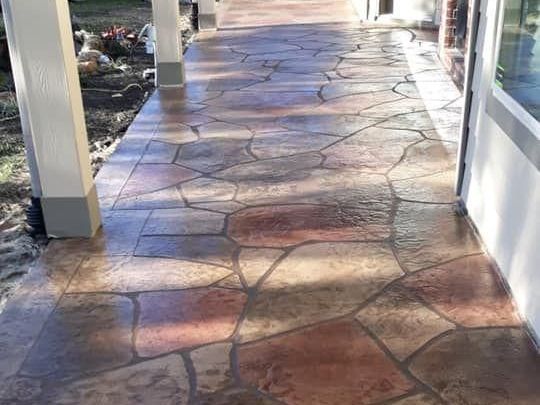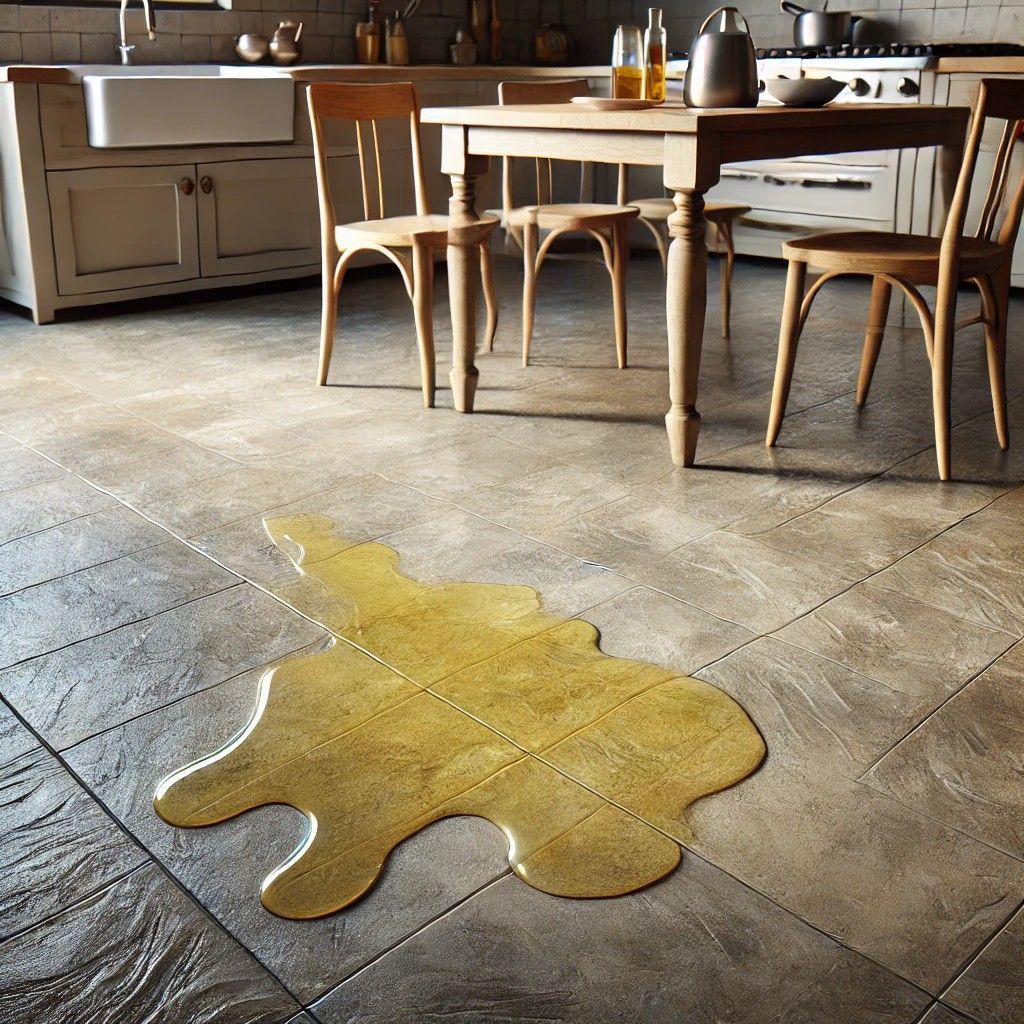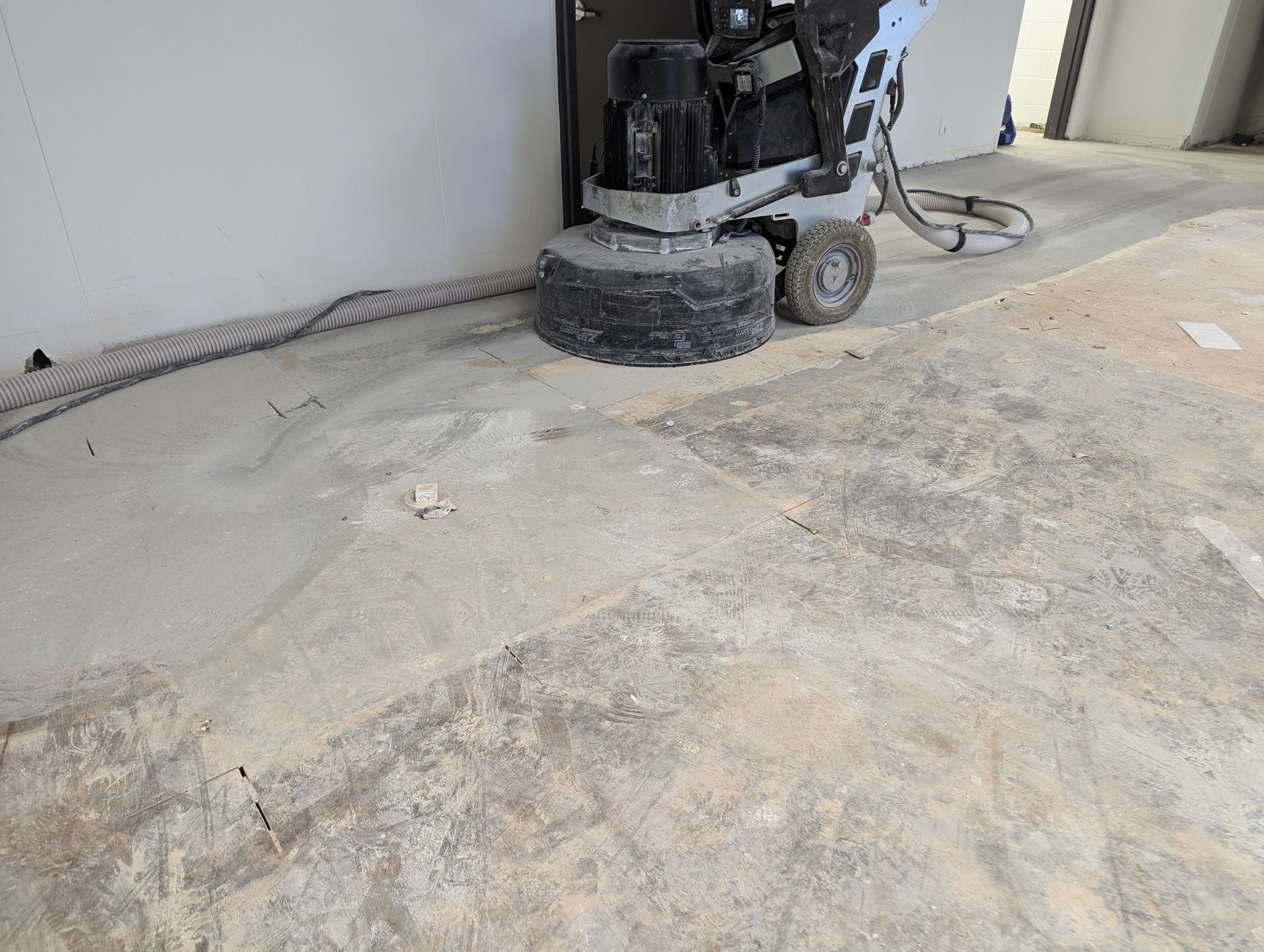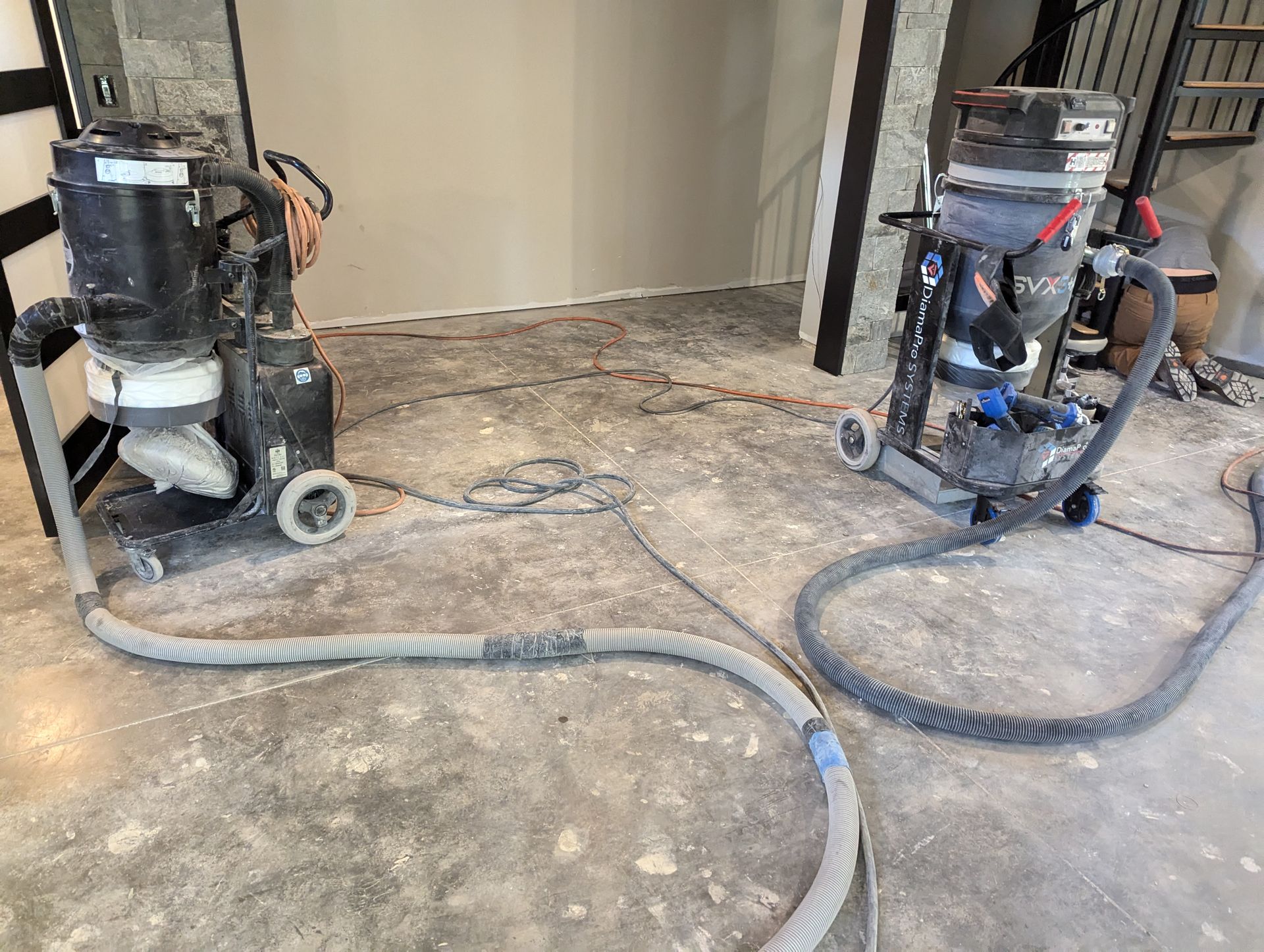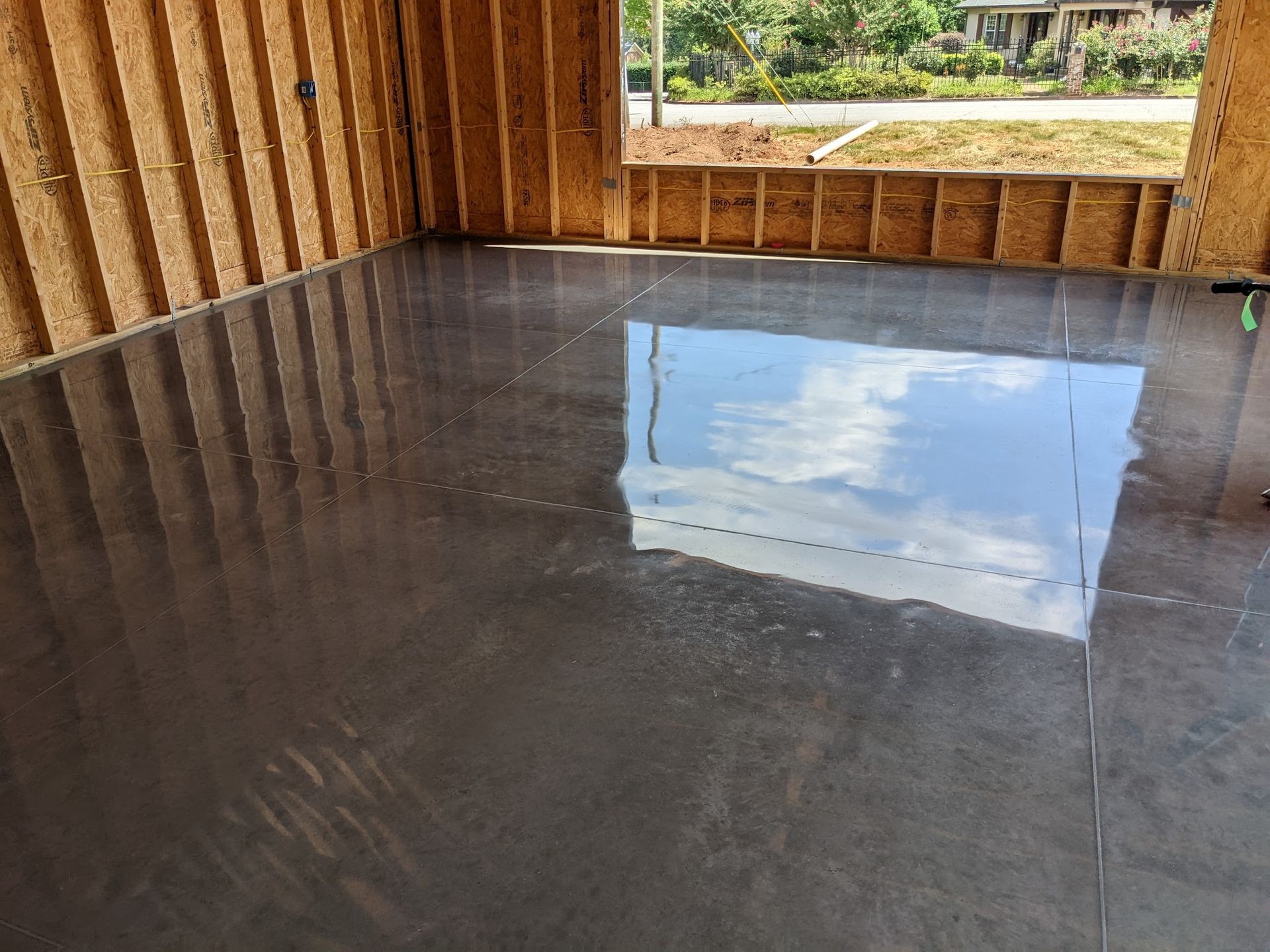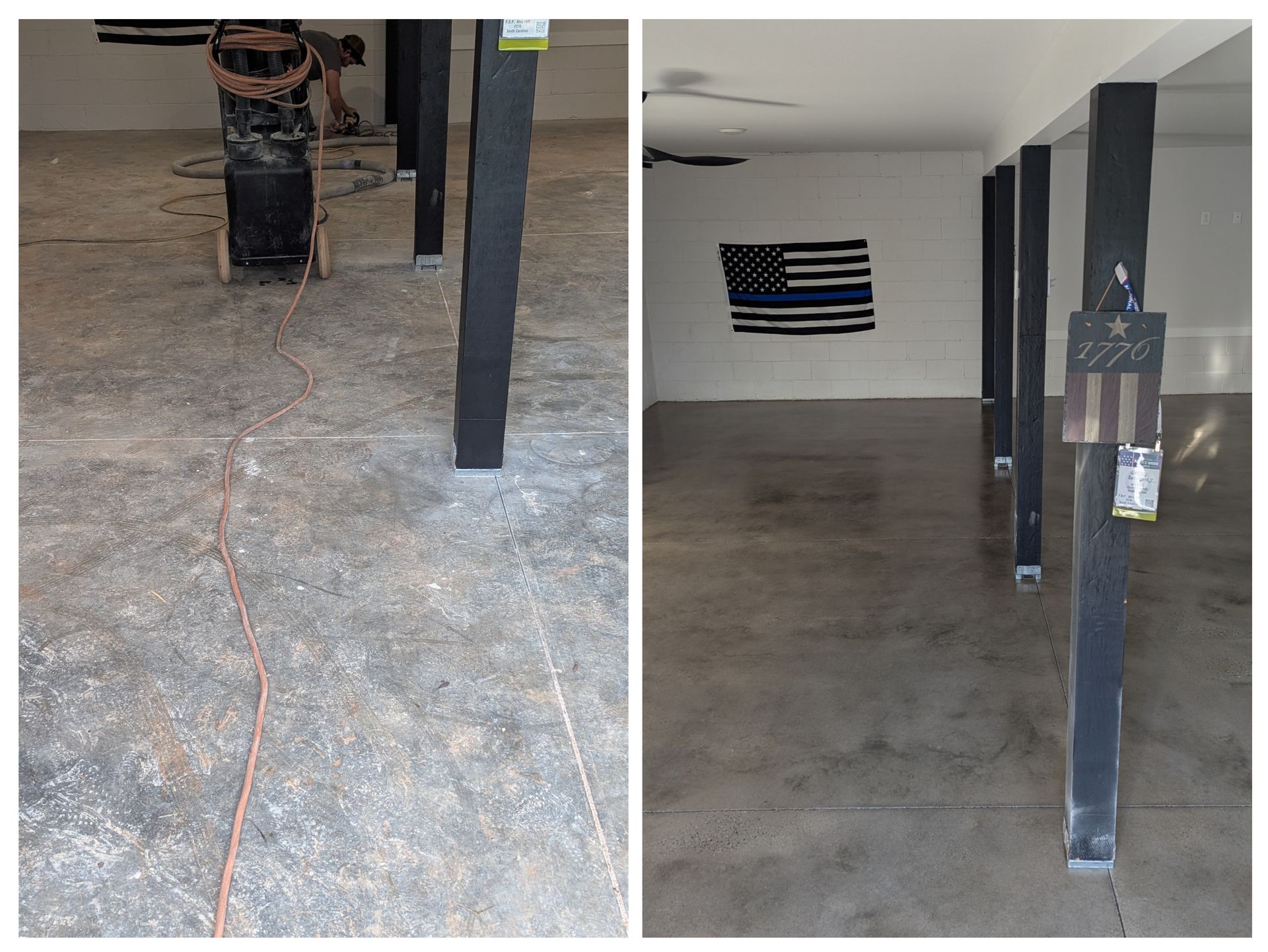Epoxy vs. Concrete Coating: Which Is Right for Your Home?
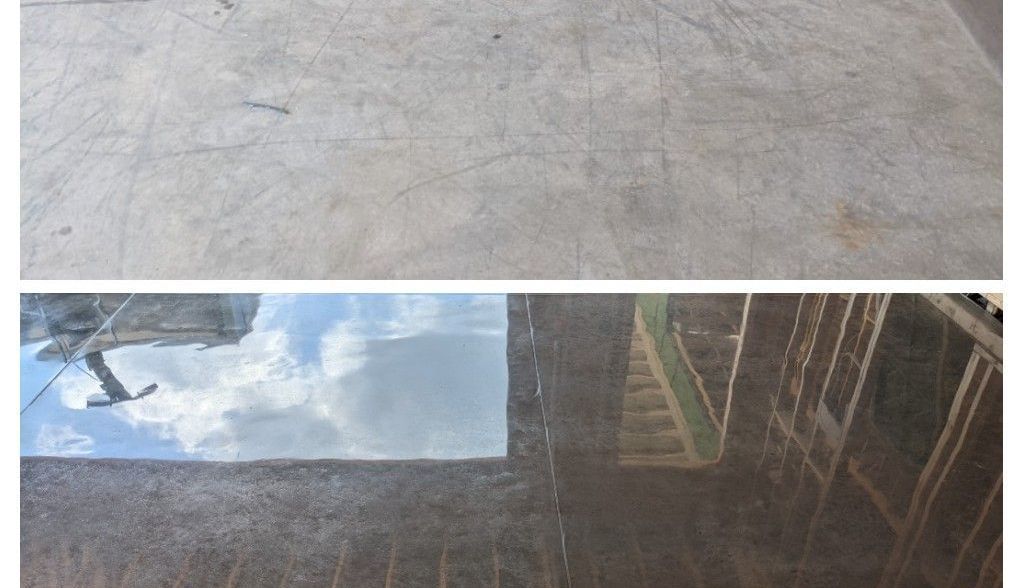
What is Epoxy Coating?
Epoxy coating is a durable, resin-based material applied to concrete floors, making them strong, long-lasting, and visually appealing. It's made by mixing epoxy resin with a hardener, creating a strong chemical bond.
Known for its shiny, high-gloss finish, epoxy floors resist stains, moisture, and scratches, making them both tough and easy to maintain. They provide a protective layer against wear, tear, and spills like oil or dirt, making them ideal for high-traffic areas like garages and driveways. Plus, their low-maintenance nature and polished look make them a popular choice for busy households.
What is Concrete Coating?
enhance their appearance, protect the surface, and improve their durability. These coatings can range from polyurethane to polyurea to resin-based finishes. Unlike epoxy, which is typically a resin applied over concrete, concrete coatings can include other types of finishes such as polyurethane for UV protection or polished concrete for an elegant, smooth finish. Concrete coatings also offer many possibilities for residential spaces.
These coatings offer abrasion resistance, moisture protection, and enhance the durability of the concrete beneath. They can also be customized with stains or dyes, offering a wide range of aesthetic options. These coatings help improve the beauty of concrete surfaces, giving them a polished, high-end look that rivals marble or quartz.
Common Uses of Epoxy Flooring in Homes
Epoxy flooring is commonly installed in areas that require durability and moisture resistance. Here are some of the most popular areas in residential homes where epoxy floor coatings are used:
- Basements: Epoxy floors are perfect for basements due to their moisture resistance and waterproofing properties. These floors can resist water damage and prevent mildew growth, making them ideal for areas prone to humidity.
- Garages: Whether you're a car enthusiast or just need a tough, easy-to-clean surface for a high-traffic area, epoxy floors are a great choice. They resist oil stains and abrasion, making them perfect for a driveway or garage.
- Bathrooms: Since epoxy provides a waterproof surface, it’s also used in bathroom renovations. It resists water, stains, and dirt, ensuring a clean and long-lasting floor.
- Patios:
When it comes to exterior areas like patios, epoxy can withstand UV exposure and harsh weather conditions, ensuring your outdoor space remains beautiful year-round.
Common Uses of Concrete Coating in Homes
While epoxy coating is often preferred for its resilience, concrete coatings also have their place in residential spaces. These are commonly used for:
- Patios: Similar to epoxy, polyurethane coatings can protect patios from wear, moisture, and abrasion, giving them a sleek, finished look. With the ability to add stain or dye, it’s easy to personalize your patio with decorative concrete coatings.
- Driveways: Concrete coatings are perfect for enhancing the look of driveways and protecting them from harsh conditions. These coatings are great at withstanding abrasion and dirt while giving the concrete a fresh, new appearance.
- Basements: Just like epoxy, concrete coatings are also a good option for basement floors. Many polyurea or polyurethane coatings are moisture-resistant, making them ideal for basements with high humidity.
- Flooring Installation:
Whether you're installing flooring in a living room or a bedroom, concrete coatings provide a smooth, durable finish for your floors while giving you the option to choose between various finishes like satin or gloss.
Difference and Comparison
Now, let’s break down the key differences between epoxy coatings and concrete coatings so you can choose the best option for your project.
| Criteria | Epoxy Coating | Concrete Coating |
|---|---|---|
| Durability | High durability, resists abrasion, oil, and moisture | Durable, but may not be as strong as epoxy in high-traffic areas |
| Aesthetics | Smooth, high-gloss finish; available in various colors and styles | Customizable with stains, dyes, and textures; can look like marble or quartz |
| Application | Requires careful application and surface preparation | Easier to apply, often used for decorative concrete |
| Cost | Generally more expensive upfront | More affordable but can require more maintenance |
| Maintenance | Low-maintenance, easy to clean with basic cleaning tools | May need more frequent upkeep, depending on the coating type |
| Moisture Resistance | Excellent, ideal for damp areas like basements | Varies, but many coatings offer good moisture resistance |
| UV Protection | Limited UV protection; can yellow over time | Polyurethane and polyurea coatings offer better UV resistance |
| Warranty & Customer Service | Often comes with a warranty; check with the brand | Warranties available from some brands; vary by product |
Which Is Right for Your Project?
Choosing the right coating for your concrete floor depends on several factors:
- Epoxy coatings are the best option for areas that require durability, moisture resistance, and low maintenance. If you need a tough, easy-to-clean surface in areas like garages, basements, or driveways, epoxy is a great choice.
- Concrete coatings, on the other hand, offer a wider range of aesthetic options and are better for decorative concrete. If you're looking for a more customizable look or need a UV-resistant surface for an outdoor patio, concrete coatings may be a better fit.
Both epoxy and concrete coatings offer great durability, but the choice depends on your specific needs, budget, and desired aesthetic.
Conclusion
When deciding between epoxy vs. concrete coating, it’s important to consider your project’s requirements. Epoxy coatings are ideal for homeowners seeking durability, moisture protection, and a high-gloss finish.
However, if you're more interested in decorative concrete or need UV resistance for an outdoor space, concrete coatings might be the way to go. Whether you're renovating a basement, installing residential epoxy flooring, or updating your driveway, both options can provide long-lasting and beautiful results.
Make sure to reach out to
Blastek Concrete Designs in Spartanburg, SC for a free quote or estimate to ensure you're getting the best price for your project.
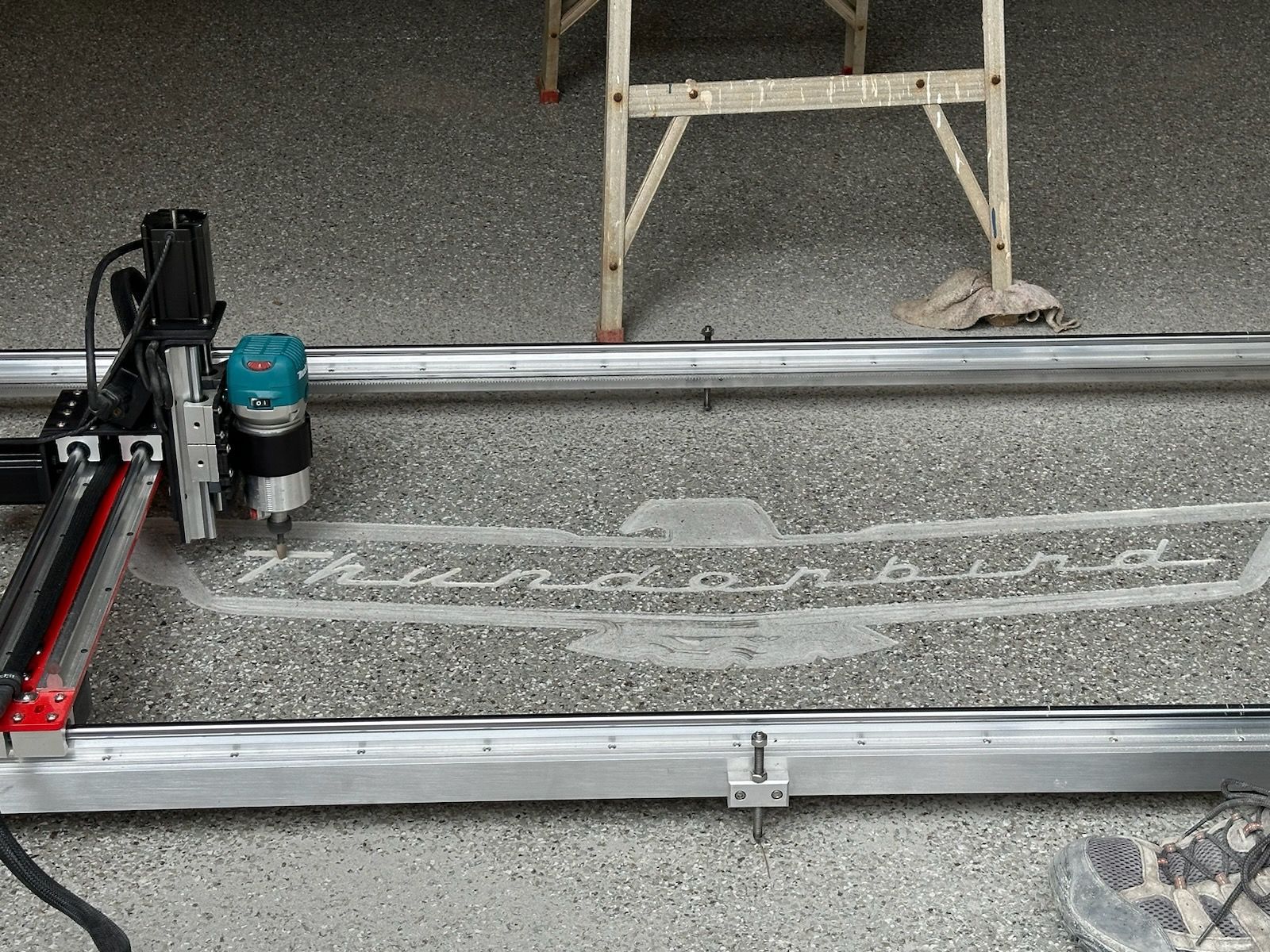
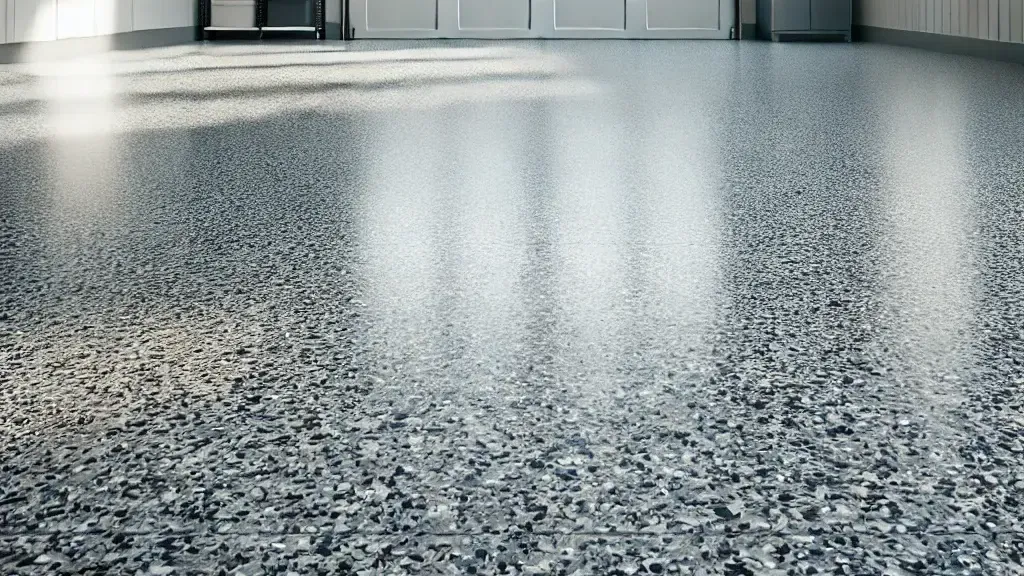
Want to learn more? Check out our BLOG
SERVICE AREA
- South Carolina
- Georgia
- Tennessee
- North Carolina
- Spartanburg, SC
- Upstate, SC
Blastek Concrete Designs | Design by: Quantum Hawk


